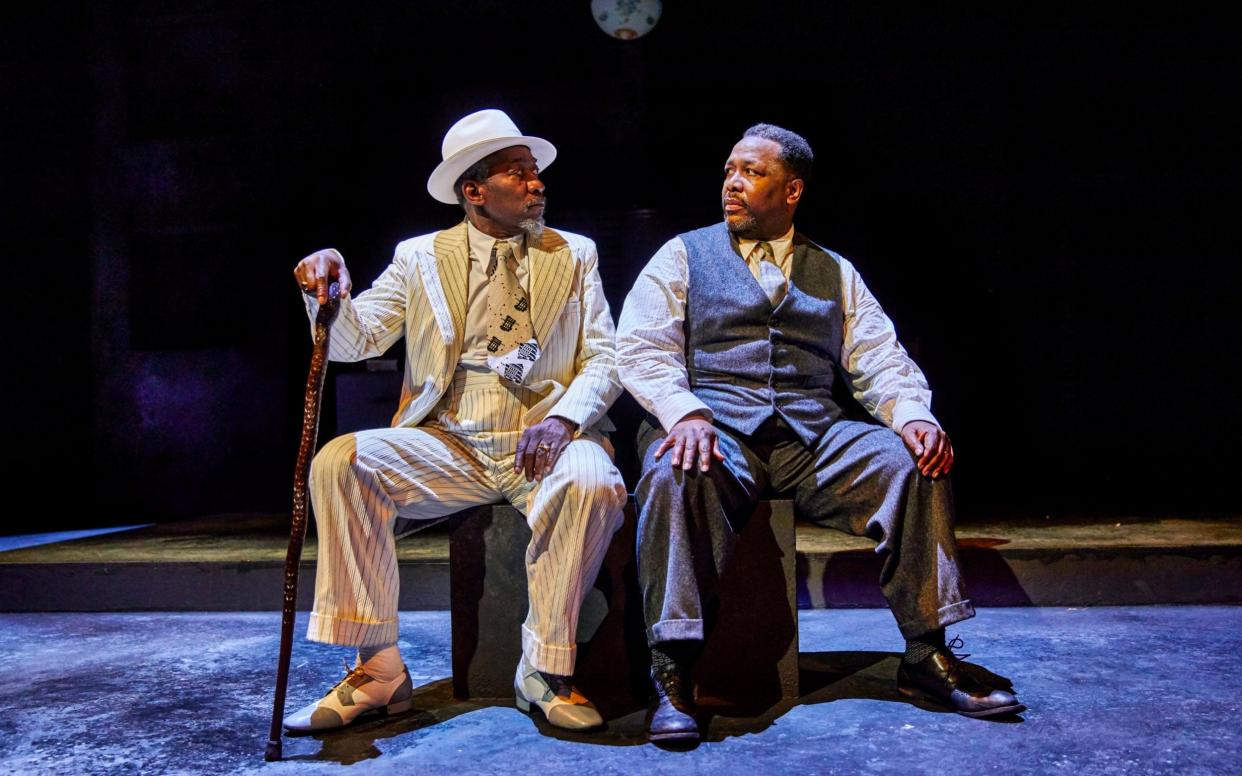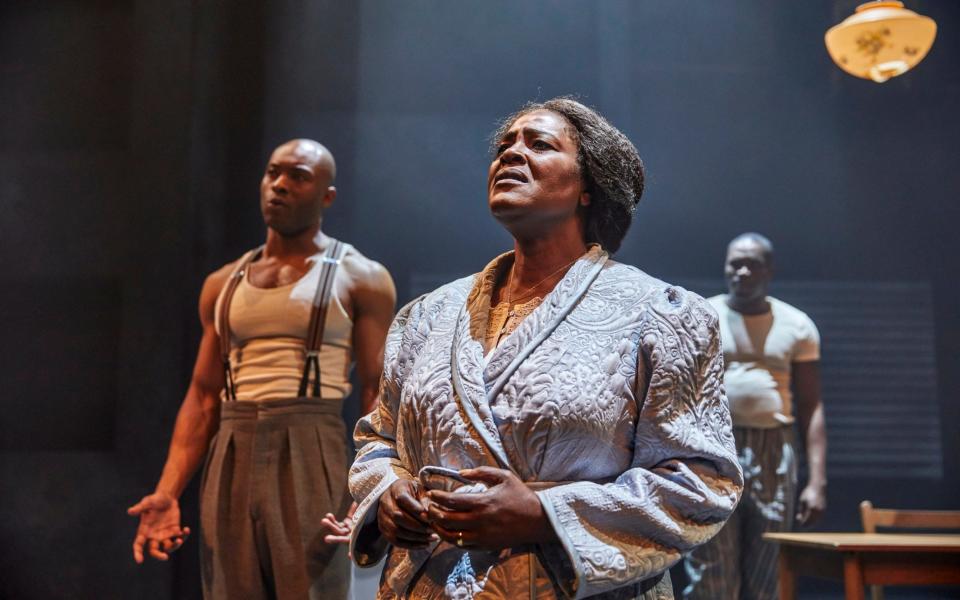Death of a Salesman, Young Vic, review: Wendell Pierce fits well in this reinvention of a masterpiece

Arthur Miller’s Pulitzer Prize-winning masterpiece about an ageing travelling salesman falling apart as time, hope and work run out has been seen many times in London, most recently – in 2015 – with Antony Sher in the lead as Willy Loman. But it has never been staged the way Marianne Elliott presents it at the Young Vic.
Recruiting the distinguished American actor Wendell Pierce (HBO classics The Wire, Treme, oh and Meghan Markle’s on-screen dad in US legal series Suits) for a part likened to Lear, Elliott doesn’t just give London its first black Loman. Eschewing colour-blind casting, this remarkable, ground-breaking director, fresh from success with gender-flipping Stephen Sondheim’s Company, situates the play within an African-American context.
That’s a move as high-risk as it is rare. In 2009, the critic John Lahr quoted African-American playwright August Wilson’s robust 1996 attack on the idea in a review of such a production (staged at Yale Rep) in The New Yorker: “To mount an all-black production of Death of a Salesman or any other play conceived for white actors as an investigation of the human condition through the specifics of white culture is to deny us our own humanity, our own history…” he railed.
One can understand Wilson’s concern. “Appropriating” a work concerning a white, middle-class, implicitly Jewish New York family might be thought to gloss over the glaring differences experienced across the enforced racial divide of the period. There is no discussion of race, racial antagonism or segregation in the play.
Yet Elliott (working with co-director Miranda Cromwell) has done her research and the evening brilliantly argues the case for such an approach; only one bit of the text has been altered (Willy’s son Biff dreams of attending the University of Virginia – an impossibility at the time for a young black male; hence a substitute, UCLA). Melting-pot New York could have accommodated a black family like the Lomans, seduced by the American Dream of affluence and ownership, working within the parameters of white-dominated society. The lack of overt references enables, in fact, a new eloquent kind of subtext.

Arriving doleful, besuited, tired but not yet fully defeated, Pierce’s Willy is first seen carrying two heavy suitcases, and a burdensome load of expectations for his grown-up sons Biff and Happy and himself. We register through Pierce’s concerted affability and moments of furrowed perplexity, in the glancing references to being ignored and overlooked as invisible, a feeling of the brick walls facing him and his kind.
Oscillating between stoical serenity and flashes of anger, part teddy-bear part tyrant figure, Pierce at one point vents his frustration on Arinze Kene’s Biff by placing angry emphasis on the word “boy”; that word gives you a note of inherited self-loathing.
“Note” is the operative word. There’s a fine musicality to this production – bluesy music steals into it, phrases sounded in the reveries into which Loman loses himself are sung, a gospel number becomes a soulful motif.
Pierce is matched for watchful, careworn expressiveness by Sharon D Clarke as his wife Linda, breaking your heart on his behalf with her pleas for attention to be paid to this man emblematic of millions of wage-slaves. Amid a wonderfully ethereal set (designer Anna Fleischle), in which window-frames and objects fly and float, Martins Imhangbe’s Happy, the younger brother, exudes the kind of athletic prowess that could lift a truck – yet he’s powerless to rescue a man with barely a nickel left to his name. Seventy years on, how this masterpiece resonates and devastates afresh.
Death of a Salesman runs at the Young Vic, London SE1, until July 13; youngvic.org

